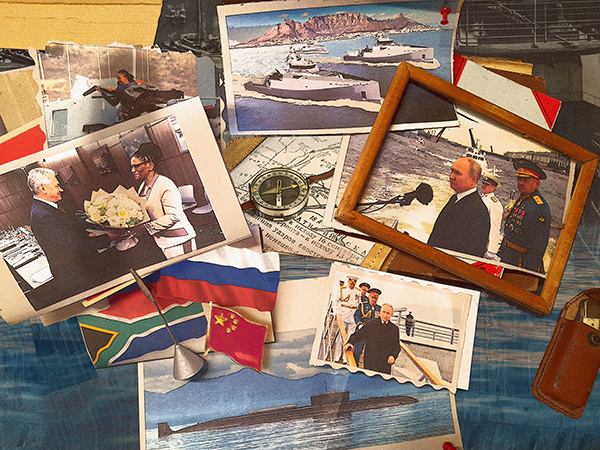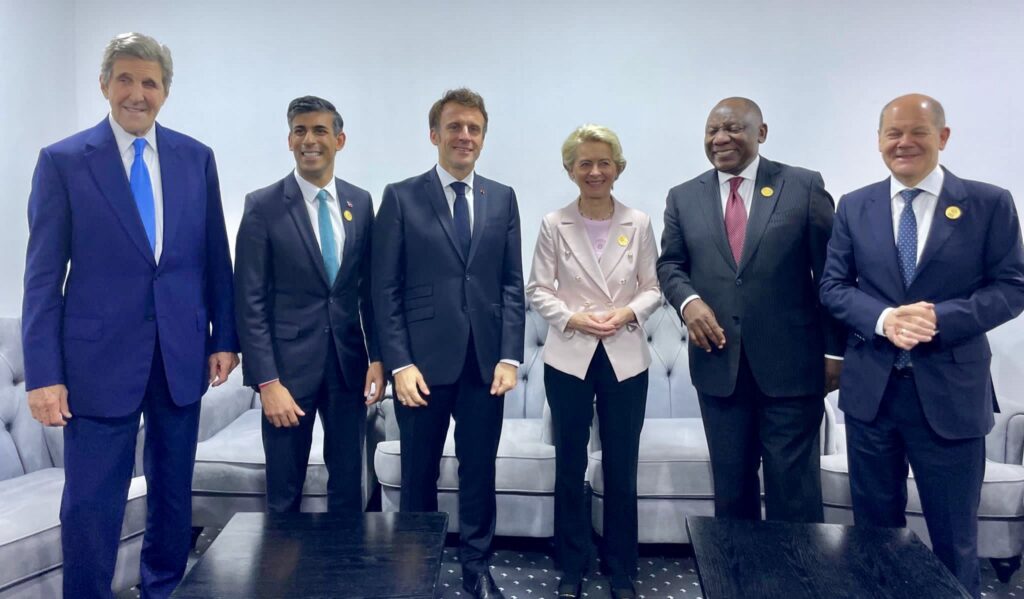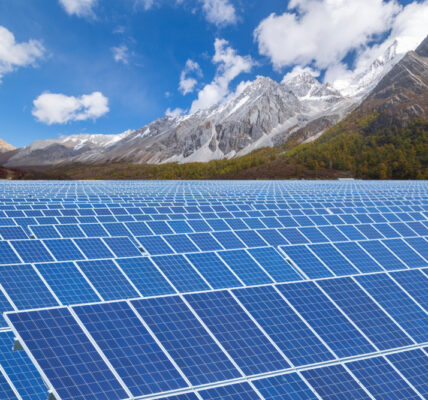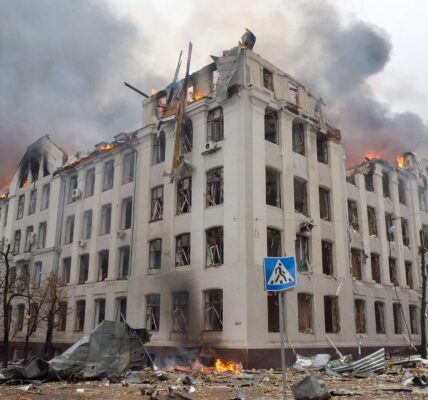One hand holds a begging bowl for the West, the other is around Putin’s bladder

On the same day that pres. Cyril Ramaphosa begged Western countries at the UN Climate Change Conference in Egypt for R1.5 trillion for a transition to sustainable energy, it was announced that South Africa will hold a joint naval exercise with Russia and China in three months. This fits in with Russia’s and China’s long-term goals to establish a stronger presence in the Indian Ocean and in Africa, but dealing with the aggressor in Ukraine cannot bode well for South Africa, writes ERIKA GIBSON.
It’s ANC ideology over national strategy. That is the only possible explanation. Meanwhile, the red carpet has just been rolled out in Pretoria for the Cuban defence minister.
Elements within the ANC view the friendly relations between South Africa and the West as treason. ANC veteran and national executive committee (NEC) member Tony Yengeni only this week tried to cast Ramaphosa’s meetings with Western leaders in Egypt suspect just this week:

Tornado..Veteran 102
What’s wrong with this pic?

But a shocked senior military analyst says in going ahead with the naval exercise, South Africa has grouped itself with likes of North Korea and Iran in giving the West the middle finger.
There’s also the fact that South Africa’s navy barely has any operational ships, and there may be little to learn from Russia given the poor performance of its naval forces in the war with Ukraine.
The timing of the exercise’s announcement also raised eyebrows in diplomatic circles, coinciding with Ramaphosa’s Cop27 request for Western support in addressing the country’s energy crisis.
“The president doesn’t hesitate to beg for money, but from a foreign policy point of view they are spitting in the face of the West, which leaves a foul taste in the mouth of the international community,” says a senior military officer.
“No one understands South Africa’s foreign goals any more because no one knows which position South Africa will take on a given day.”
South Africa has been working for a number of years with the US, Britain, France, Germany and the European Union on a plan to finance its just energy transition.
All these powers are supporting Ukraine with billions of dollars and modern weapon systems, while the UN has accused the Russian military of a range of war crimes in Ukraine.
An overwelming majority of UN member states have condemned Russia’s military actions in Ukraine and the annexation of large parts of its territory.
Caught off guard
The announcement of the maritime exercise, in which Russia will apparently be the leading country, even caught some senior defence department officials off guard. The Russian delegation was fully present at the planning meeting in Durban, while the Chinese delegation was more modest.
Defence minister Thandi Modise and her Russian counterpart, Sergei Shoigu, met in August at the Moscow Conference on International Security and discussed “the prospects of military and military-technical cooperation”, according to Russia’s department of defence.
In a statement issued in English, Shoigu said:”I would like to suggest that we synchronise our watches today in terms of military and military-technical cooperation, and identify prospective areas of cooperation.”
It is, admittedly, the second maritime exercise among the three countries — the first was in 2019 — but with the Ukraine war raging it is unthinkable that Russia wants to host another exercise off the southern tip of Africa while its fleet has suffered major losses in its own territory.
Ukraine has sunk at least 21 of Russia’s most advanced combat vessels while capturing another seven. So what is it that South Africa hopes to learn from Russia about naval warfare?
Meanwhile, defence budget cuts mean the South African Navy might be able to operate only two of its bigger vessels on open water on a good day. And then not even far out to sea.
Horrible condition
The military’s annual report confirms the horrific state of the navy’s ships, which last undertook an extensive international operation/cruise in 2017 when the frigate SAS Amatola joined exercises with Britain, Ghana, Equatorial Guinea, Angola and Namibia.
Since then the Mozambican coast has been the furthest a vessel has sailed, providing sporadic support for the Southern African anti-insurgency intervention.
South Africa did not even have the capacity to meet its commitments to patrol the Mozambican channel to combat piracy and other international crimes in 2021. Only one of the four frigates, SAS Spioenkop, is mission-ready. The remaining ships are awaiting major supplies for which there aren’t any funds.
In 2020/21 the total number of hours at sea dropped from 10,000 to 8,000, but by March this year only 7,600 had been used.
According to the military’s official statement, the goals of the Durban exercise with Russia and China are yet to be decided. Another meeting is set for December before the exercise in February.
Showing off, spying or strengthening ties
Naval vessels of Russia, China and many other countries regularly visit South African ports. They might want to to show off their capabilities for strategic reasons, spy on South Africa’s naval capacity or lack therof, or simply strengthen naval ties.
In 2009, Russia’s enormous nuclear-powered attack vessel, Pyotr Velikiy (Peter the Great), arrived in Cape Town after the South African nuclear regulator initially refused it permission to do so. The combat vessels accompanying the ship formed part of a global cruise by the Russian navy to show off its arsenal.
Chinese naval ships often arrive in Durban given that Beijing conducts anti-piracy patrols in the Gulf of Aden. The first joint exercise between South Africa, Russia and China was partly a demonstration of how well the Brics countries could cooperate militarily.
But the importance of Brics has since declined significantly, especially after India and China clashed in 2020 over their Himalayan border. More than 20 Indian soldiers and four from China were killed in the skirmish.
The Russian invasion of Ukraine in February has lead to further divisions in Brics after Brazil supported the UN resolution condemning Moscow, while India, China and South Africa abstained. South Africa insists it remains neutral in the conflict but makes no secret of its cordial relationship with Russia.
According to a former South African admiral, there has been a departure from official diplomatic boundaries when it comes to mutual military cooperation. In light of the border conflict, India and China will never cooperate militarily, he says.
Brazil careful around US
“The Brazillians are careful not to do anything to arouse US suspicions. Both India and China have powerful fleets and can be viewed as naval powers rather than just countries with a navy. So too Brazil. South Africa was strategically important for them given its location and therefore joint maritime exercises are seen as important to this day.
“But the Exercise Good Hope with Germany has repeatedly been postponed for the past two years, along with other regular exercises held with the French fleet. A watered-down version of Exercise Ibsamar, which was previously held with the Indian and Brazilian navies on the South African east coast, did take place this year, but without Brazil’s participation.
“Joint naval exercises ensure that countries understand each other’s way of doing things, as well as the respective countries’ doctrines in terms of training. China respects military power and discipline.
“When the South African navy sailed SAS Spioenkop to Shanghai in 2008, it was the first time an African combat vessel docked in China. It was to commemorate 10 years of diplomatic cooperation between the two countries.
“The Chinese were raving about the guts of the South Africans to undertake such a long voyage (which ultimately stretched 32,000km). There was respect for us. The Chinese are, however, keen observers, and have since realised that the fleet is currently only a shadow of what it was then. It is not only due to the budgetary constraints, but also because they don’t see stature and discipline in our naval leadership.”
Moreover, the South African weapons industry no longer holds much value for any of the international powers, except when business is done with selected manufacturers.
So why the naval exercise?
Plans in Africa
President Vladimir Putin announced a new maritime doctrine on July 31, professing that Russia’s influence in the Red Sea and Indian Ocean should be expanded. Moscow already has maritime facilities in Tartus, Syria, and is negotiating for a base in Port Sudan.
Beijing is subtler about its plans in Africa but spends billions in aid on a range of countries, as well as providing military support. It has bases in Equatorial Guinea and Djibouti.
The Chinese state-owned entity Poly Technologies tried to enter a partnership with Denel which would have seen it take over the development and management of the naval shipyard in Simon’s Town. It appears to have been unsuccessful.
Defence analyst Helmoed-Römer Heitman says there is great value in joint exercises with any country, as well as international exchanges by military students.
“There is always something to learn, even if it is how not to do something,” he says. “Young officers make friends who become important in the long run as they move up the ranks.
“With regards to joint exercises, it is also important that the crew members of a ship know how to work together when they are somewhere in international waters, be it to help a sinking ship or faced with pirates.
“I do, however, have a problem with South Africa’s obsession with China and Russia in comparison with our poorly veiled hostility towards Western countries, because it doesn’t serve the country’s interests.
“The majority of our exports go to Europe and North America, while that which goes towards Asia is destined for countries that view China as an aggressive neighbour (such as India). The West is responsible for the majority of foreign investments in South Africa.
China, Russia and India
“China largely imports raw materials from South Africa, which means little for job creation in the long run. With China’s own internal policy shifts and economic challenges, indications are that imports from South Africa will decline.
“India, on the other hand, will most probably surpass China economically in the near future, while Russia is economically and strategically irrelevant for us. It is basically already a failed state with a waning economy and a dysfunctional political order.”
According to Heitman, the South African government should focus on expanding and growing the economy so ordinary citizens can reap the benefits and have job opportunities. It would therefore make more economic sense to join hands with foreign investors and trading partners to produce more export goods.
“Proper ties with Argentina, Brazil, the Gulf states, Pakistan, India and even Australia are strategically more sensible, together with African states that can become mutually beneficial trading partners,” he says.
“There is simply no space for China and Russia in this space and even less for Cuba. The ANC obsessively clings to Soviet support that the party received [during the struggle against apartheid] along with Chinese rhetoric.
“The government doesn’t realise that as far as it related to Russia back then, it was only a handy way of irritating the West. Anyone who thinks the Russians were interested in establishing a democracy on the southern tip of Africa finds himself in another dimension.
“So what we are sitting with is a government — or at least a governing party — that sides with autocracies that hold no strategic or economic value for us, while continuously insulting the countries that are important to us.
“It comes down either to one-eyedness or a secret wish that it could govern South Africa with the same iron fist employed in Russia and China, and do away with the nonsense of democracy.”
Heitman said February’s exercise was likely to be basic in scope. “I have no problem with the Chinese involvement, because they are concerned with piracy patrols on a daily basis on the north-western coast of Africa. That is where a significant number of ships headed to South Africa move.
Reprehensible attempt at annexation
“If it weren’t for the Russians’ invasion of Ukraine, I could still have accepted Russia’s participation. But not given that Russia deliberately engages in a war of aggression and planned occupation of another country, because that means South Africa supports the reprehensible attempts at annexation.”
Kobus Marais, the DA defence spokesperson, says the exercise is a “horrible” error of judgment.
“While the UN and the majority of member states condemn Russia’s invasion, South Africa — which calls itself a campaigner for human rights — supports its Russian friends,” he says.
“The military is limping due to a shortage of funds just to service its primary combat equipment or support our soldiers in Mozambique. Still, there is no shortage of funds to receive the Russians or Cubans as kings.”


















































































































































































































